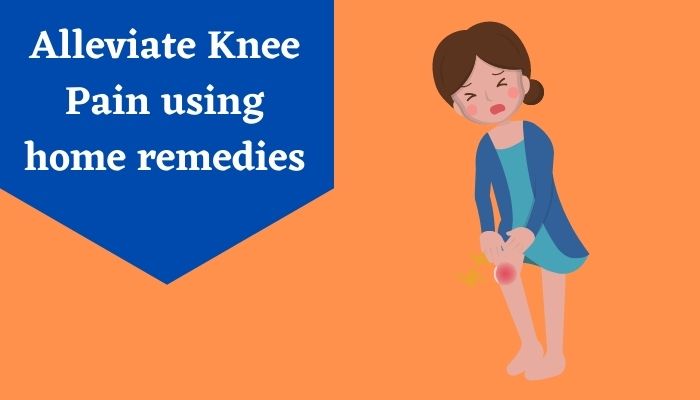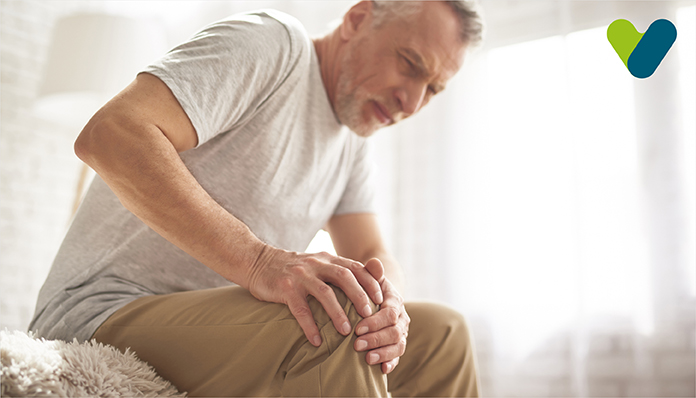Knee pain is a common problem resulting from both short- and long-term issues. Many short-term knee problems may not require medical intervention, and patients can often aid in their recovery. Knee pain has become a part of life for many people since it never goes away. This pain might begin at any age. However, it is increasingly common as you become older. Knee pain might affect your regular activities, whether it's related to an injury or an underlying medical issue. The intense pain can persist for several hours or even days at a time.
An Overview of Knee Pain

Obesity is the most common cause of knee discomfort that everyone is currently dealing with. Obesity causes knee discomfort in people of all ages because it puts extra pressure on the knee joints. It can become a lifetime problem for some people. Self-care strategies work well for many types of minor knee pain. Knee braces and physical therapy can also help alleviate knee pain.
Home Remedies for Knee Pain
1. Weight loss and diet: Knee pain is more common in people who are overweight or obese. Carrying excess weight puts more strain on the joints. Losing weight benefits in reducing long-term knee pain, particularly arthritis pain. Extra weight causes inflammation throughout the body, including the knees. Eating healthy promotes weight loss.2. Massage with essential oils: Knee and joint pain can be relieved effectively by massaging the affected areas. It's even more effective to massage your knees with essential oil. According to research, ginger and orange essential oils effectively treat knee pain. It helps to relieve stiffness and discomfort in the affected area.
3. Medications: Arthritis-related knee pain caused by arthritis can be reduced with nonsteroidal anti-inflammatory drugs and other treatments. Some of them must be administered at a doctor's office, while others can be administered at home with or without a prescription. Oral or topical nonsteroidal anti-inflammatory medicines, topical capsaicin, steroid injections into the joint, and tramadol are among medications that can help manage pain.
4. Heat and cold compress: Heat and cold compresses can help relieve the symptoms of knee pain. However, the treatment you choose is determined by the sort of pain you are experiencing. Heat should be avoided if there is inflammation because it can worsen the condition. Heat therapy is the most effective treatment for persistent pain, such as arthritis. Apply a cold compress to a sports injury.
5. Turmeric: Turmeric is a beautiful spice that has numerous health advantages. Antiseptic, anti-inflammatory, and antioxidant activities are all present. It contains Curcumin, an anti-inflammatory compound found in turmeric that has antioxidative activities. Rheumatoid arthritis, one of the causes of knee discomfort, is slowed at the source. Boil a half teaspoon of ground ginger and turmeric in a cup of water for 10 minutes for immediate relief. Strain the 'tea,' and add honey for taste, and drink it twice daily.
6. Yoga: Yoga therapy has grown in popularity in recent years as a stress reliever and efficient approach to relieving various forms of pain. A study of approximately 66 persons with knee osteoarthritis found a reduction in knee pain and improved knee joint function.
7. Acupuncture: Acupuncture is a standard pain-relieving treatment that has its roots in Chinese medicine. To treat knee pain, tiny needles are implanted at particular spots in the skin at various locations throughout the body.
8. Tulsi: Tulsi, often known as holy basil, treats arthritis. It's anti-inflammatory as well as antispasmodic. Tulsi is also effective in reducing joint pain and arthritis pain. Take Tulsi tea 3-4 times per day for knee pain treatment.
9. Epsom Salt: Epsom salt reduces joint pain and swelling by anti-inflammatory. It includes magnesium and sulphate, both of which are effective pain relievers. You can soak in your bath for 30 minutes after adding a spoon of Epsom salt to the water.
10. Castor Oil: Castor oil is a fantastic natural way to relieve knee joint pain, and it's even mentioned in the Ayurveda manuscripts of Sushruta Samhita and Charaka Samhita for its ability to alleviate arthritis symptoms. It contains ricinoleic acid, a potent phytonutrient with anti-inflammatory qualities that relieves soreness, pain in the bones, muscles, and joints of the body. It is known as Eranda Tailam in Ayurveda terminology in Sanskrit.
11. Cayenne pepper: This fiery red spice includes a component known as –capsaicin, which functions as a natural pain reliever. It briefly deprives substance P, a brain molecule that stimulates pain receptors and reroutes nerves, preventing joint pain. Its paste can be applied to the affected area for immediate alleviation.


